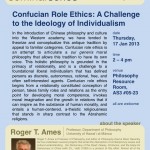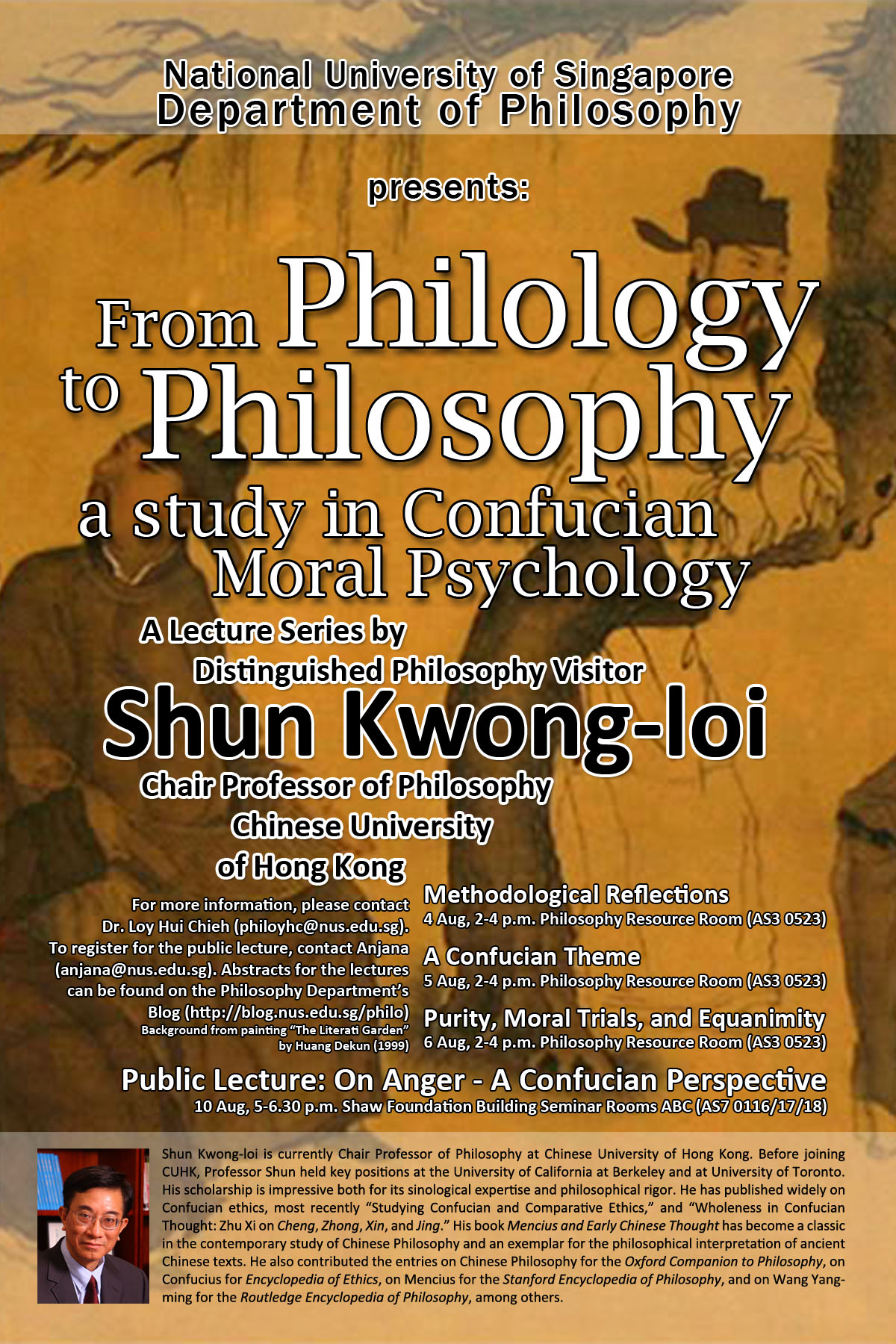Prof. Roger T. Ames, who is currently teaching Chinese Philosophy and Pragmatism here in our Department, will be delivering a lecture in the Asian Civilisations Museum.
This lecture is organised by the Asian Civilisations Museum. All are welcome!
Date: Saturday, 23 March 2013
Time: 1 to 2pm
Venue: Ngee Ann Auditorium, Asian Civilisations Museum.
This is a free lecture. No registration required.
Abstract:
One feature of the East Asian philosophical traditions – Confucianism, Daoism, and Buddhism (儒道佛) is that they are understood to be complementary rather than exclusive. These importantly different “enlightening ways” share a common point of depareture. Each of them is committeed to the need for a regimen of personal cultivation in our everyday lives in order to transform the human experience and to make the most of our narratives as human beings. I will take representative stories from the canonical texts of the three traditions to argue that they in fact become one as each of them in their own way seeks to make the ordinary extraordinary, to enchant the everyday, and to enlighten our way in the world.
About the Speaker:
Roger T. Ames received his doctorate from the University of London and has spent many years abroad in China and Japan studying Chinese philosophy. He has been Visiting Professor at National Taiwan University, Chinese University of Hong Kong, and Peking University, a fellow of Clare Hall, Cambridge, and has lectured extensively at various universities around the world. Professor Ames has been the recipient of many grants and awards. In addition, he has authored, edited, and translated some 30 books, and has written numerous book chapters and articles in professional journals. He was the subject editor for the Chinese, Japanese, and Korean entries in the Routledge Encyclopedia of Philosophy. Currently, he continues to work on interpretive studies and explicitly “philosophical” translations of the core classical texts, taking full advantage in his research of the exciting new archaelogical finds.




 About the Speaker: Winnie Sung is a postdoctoral fellow of Chinese Philosophy at Nanyang Technological University. She received her BA in philosophy from University of Toronto and Ph.D. from the University of New South Wales. She is interested in early Chinese thought, with emphasis on Xunzi and Confucian ethics.
About the Speaker: Winnie Sung is a postdoctoral fellow of Chinese Philosophy at Nanyang Technological University. She received her BA in philosophy from University of Toronto and Ph.D. from the University of New South Wales. She is interested in early Chinese thought, with emphasis on Xunzi and Confucian ethics.

